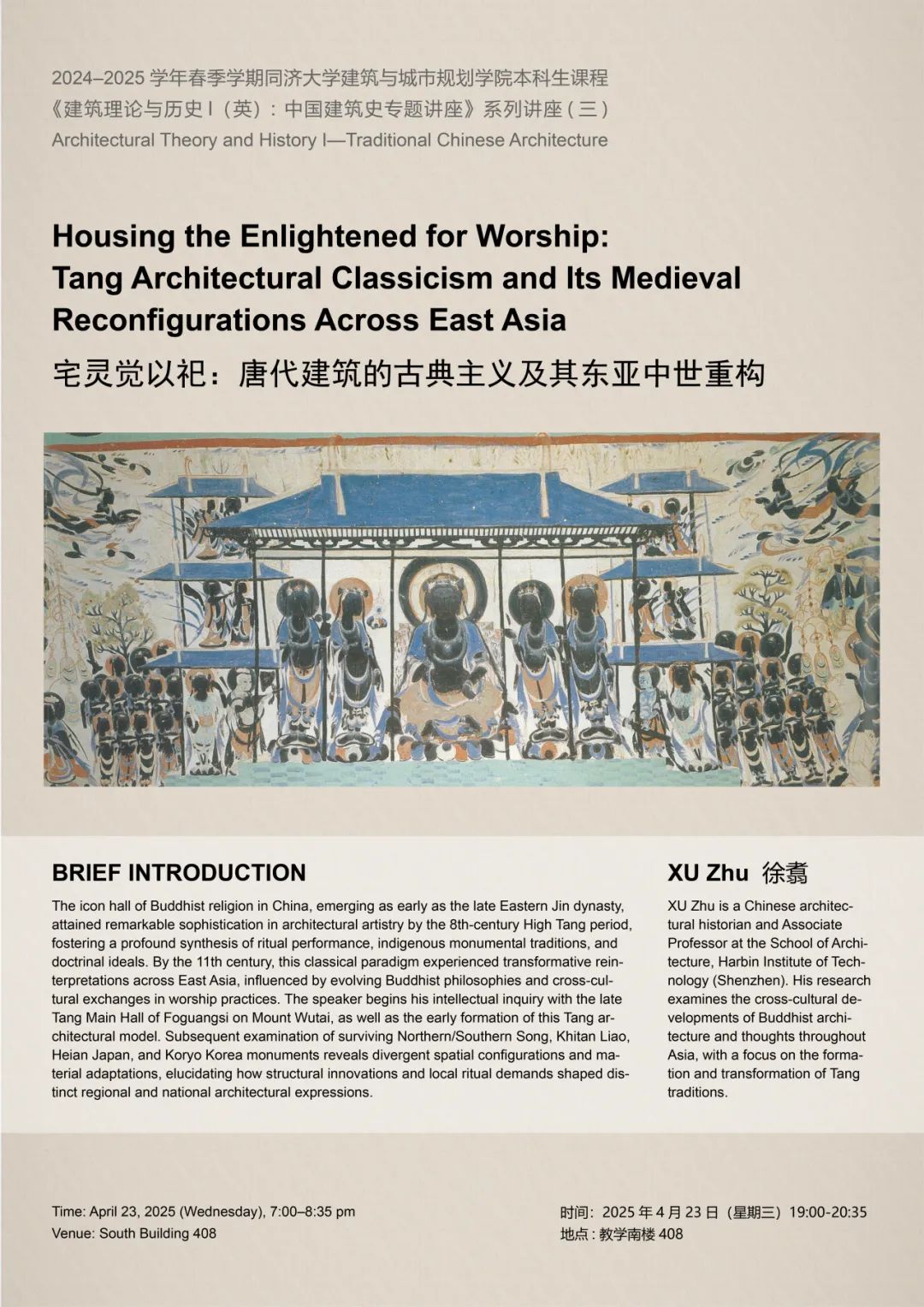

Lecturer
XU Zhu is a Chinese architectural historian and Associate Professor at the School of Architecture, Harbin Institute of Technology (Shenzhen). His research examines the cross-cultural developments of Buddhist architecture and thoughts throughout Asia, with a focus on the formation and transformation of Tang traditions.
Brief Introduction
The icon hall of Buddhist religion in China, emerging as early as the late Eastern Jin dynasty, attained remarkable sophistication in architectural artistry by the 8th-century High Tang period, fostering a profound synthesis of ritual performance, indigenous monumental traditions, and doctrinal ideals. By the 11th century, this classical paradigm experienced transformative reinterpretations across East Asia, influenced by evolving Buddhist philosophies and cross-cultural exchanges in worship practices. The speaker begins his intellectual inquiry with the late Tang Main Hall of Foguangsi on Mount Wutai, as well as the early formation of this Tang architectural model. Subsequent examination of surviving Northern/Southern Song, Khitan Liao, Heian Japan, and Koryo Korea monuments reveals divergent spatial configurations and material adaptations, elucidating how structural innovations and local ritual demands shaped distinct regional and national architectural expressions.
Time
April 23, 2025 (Wednesday) , 19:00–20:35
Venue
South Building 408
Reference
Xu, Zhu. 2020. Buddhist Architectural Transformation in Medieval China, 300–700 CE: Emperor Wu’s Great Assemblies and the Rise of the Corridor-Enclosed, Multicloister Monastery Plan. Journal of the Society of Architectural Historians 79 (4): 393-413.
Xu, Zhu. 2023. Hwangryongsa Reconsidered: A Korean mirror to the medieval Chinese Buddhist ritual-architectural transformation. Frontiers of Architectural Research 12(1): 28-41.
Xu, Zhu. 2024. Consecrating the Peripheral: On the Ritual, Iconographic, and Spatial Construction of Sui-Tang Buddhist Corridors. Religions 15(4): 27-62.
 ABOUT US
ABOUT US




